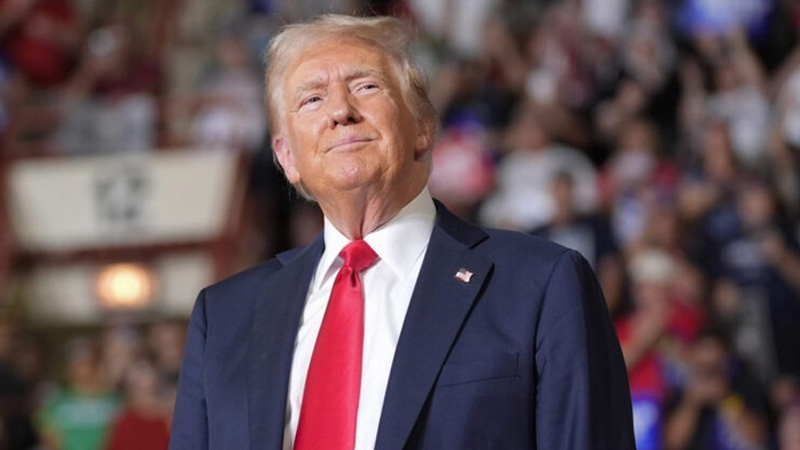“Historian Exposes Trump’s Wild 1890 Tariff Claim – Reveals How It Could’ve ‘Cost Republicans the House and White House!'”

Photo Credit: AP
During a Friday night rally in Michigan, former President Donald Trump said America’s most prosperous time was in the 1890s after then-President William McKinley passed a large new tariff. A U.S. history expert is now strongly refuting that claim.
“We’re gonna use tariffs very, very wisely. You know, our country in the 1890s was probably the wealthiest it ever was because it was a system of tariffs,” Trump said in Warren, Michigan. “We had a president, you know, McKinley, right? You remember Mount McKinley, and then they changed the name, but uh, one of those things. He was a really a very good businessman… but we were a very wealthy country.”
Author T. J. Stiles, who is also a Pulitzer Prize-winning historian, quote-tweeted the video of Trump’s remarks to launch a thread about exactly why the former president was wrong about that part of America’s past. Stiles said Trump is “no better as a historian of the 1890s than he is of the Civil War.”
“No, it wasn’t America’s wealthiest time. No, McKinley wasn’t a businessman,” Stiles tweeted. “His first big tariff bill, which he wrote in Congress, in part cost Republicans the House & White House. Didn’t make us rich.”
Stiles is referring to the McKinley Tariff Act of October 1890, which raised the average duty on imported goods by roughly 50%. McKinley, who was in Congress at the time, got the tariff passed just a month before the midterm elections. According to Encyclopedia Brittanica, McKinley’s bill proved to be politically costly for his party.
“The new tariff immediately became an issue in the congressional elections. It failed to halt the downward spiral of farm prices, but there was an almost immediate increase in the cost of many items purchased by the farmers,” A Brittanica.com article reads. “With discontent already rife in the agricultural regions of the West and South, the McKinley tariff added to the agrarian resentment. The outcome of the elections was a major defeat for the Republicans, whose strength in the House of Representatives was reduced by almost half.”
Following the GOP’s staggering defeat in the 1890 midterms, Democrat Grover Cleveland ousted Republican incumbent Benjamin Harrison in the 1892 presidential election. That election was notably the first time in American history that a Republican running for a second term lost to a Democrat. McKinley would eventually be elected president in the 1896 elections, but Stiles noted that his handling of the U.S. economy was subpar.
“It’s not that the McKinley Administration was just economic hell, but prosperity wasn’t driven by tariffs. They were super political & rife with special-interest provisions,” he tweeted. In a separate post in his thread, the historian observed that McKinley’s insistence on keeping the “deflationary” gold standard “weighed down the economy.”
“The point of all this is that Trump is ignorant of complexity, historically or in the present,” Stiles added. “His driving idea has always been that foreign countries rip off the U.S., in NATO, with migrants, or in trade. So he wants to ‘tax’ them with tariffs. He’s only taxing us.”
The historian’s point about tariffs being a “tax” on consumers is backed up by data. Washington Post columnist Catherine Rampell likened Trump’s tariff proposal to a “huge tax increase” on the middle class, as businesses will often simply pass on the cost of higher tariffs on imported goods to consumers in the form of higher prices. The conservative Peterson Institute for International Economics estimated that the average American family would pay almost $2,600 more over the course of a year for goods under a new 20% tariff.





